Living and loving on Ukraine's front line
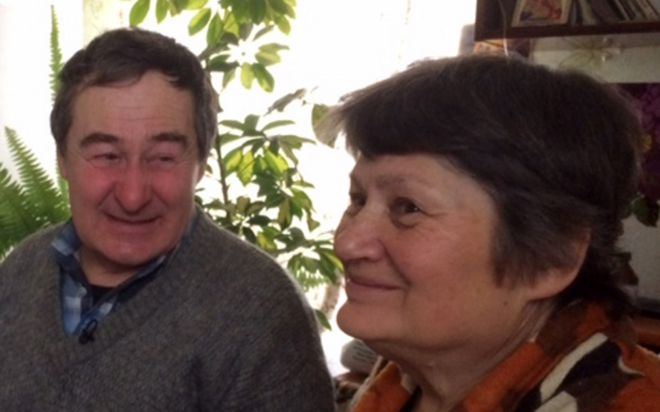
It's a year since an agreement was signed in Minsk that was supposed to end the fighting in eastern Ukraine. But the fighting continues - and civilians continue to suffer. The BBC's Fergal Keane went back to the village of Pisky to talk to a couple determined to stay in their home, come what may.
I woke to the snowy fields. Drifts rose on either side of the track. We had been moving east since dawn. The bridges were blown, the land braided with tank traps and mines. Nowadays it is easiest to travel by train to the front lines of east Ukraine. My journey back to Pisky took place in deep winter. But I will always remember the steppe in the last days before the escalation of war when we stopped once to admire the ripening corn and sunflowers and workers moved along the furrows, a murmuring progress through the heat of the afternoon.
Now the war is two years old. It is hunched in the trenches of the land between the Dnieper and the Sea of Azov. It squats in basements and crumbling apartment blocks, and stamps its feet in food queues on snowbound mornings.
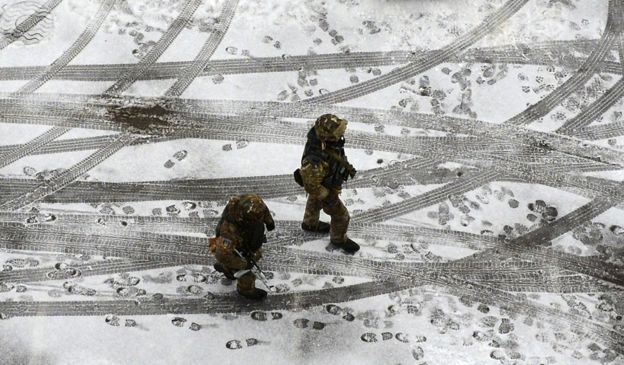 Image copyright Getty Images
Image copyright Getty Images
At Kramatorsk - where I once saw rebels pledge to fight to the death - we disembarked with soldiers from the government army which now holds the town, and we continued by road. Soon the traffic thinned out and then vanished. We entered a zone of emptiness. At Karlivka below the gleaming dome of the Church of the Holy Epiphany, the reservoir was frozen solid. A handful of men were fishing on the ice, hunched above small holes; they heard, but were by now indifferent, to the rumble of fighting another five kilometres up the road at Pisky.
The old route into Pisky, across the rough track that led directly to the home of Anatoly and Svetlana, my friend the beekeeper and his wife, has now been mined by the Ukrainians. To reach the couple we were forced down unfamiliar lanes past rows of abandoned and destroyed houses.
Pisky is trapped in a dystopian nightmare. There are 18 people left from a pre-war population of 4,000. The remaining residents are marooned inside concentric circles of devastation. The able bodied are gone. Only the old and sick remain.
The wind blew snow into our faces. This is the "wind from the age of stone", so vividly named by the poet Anna Akhmatova. It carried with it the mutter of guns from the ruined factory at the far end of the lane. The fighting is about 700m away. It goes on intermittently, half-heartedly, a series of reflexive gestures from cold and bored men.
Find out more
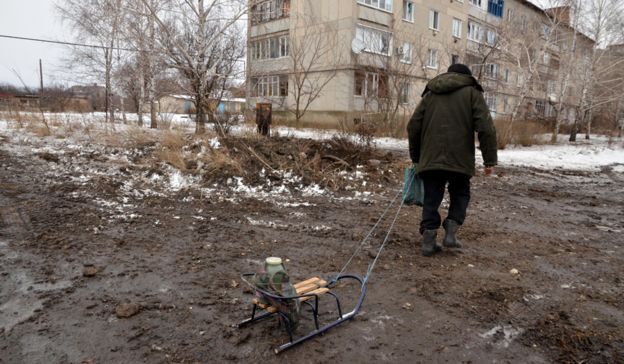 Image copyright Alamy
Image copyright Alamy I first came last May when Anatoly was busy with his bee hives and Svetlana brought baskets of vegetables from the garden for our supper. They hosted us generously. They spoke of better lives in the years before the war, and they sat outside with us watching the tracer bullets arc across the sky like a shower of malign stars.
When Svetlana opened the door and saw us huddled outside she cried out a joyous welcome and came forward to embrace me and then Daryna, my guide in the world of the east. She bundled us into the warmth of her sitting room. Anatoly came in and his laughter banished all thoughts of the guns stuttering at the other end of Pisky.
Their generosity was unchanged: out came the honey from their winter stores and the pickled cabbage and potato cakes and omelettes. But the couple looked reduced to me, more careworn. Nothing at all had changed for the better in Pisky. The peace agreement between the rebels and the government simply ensured that the front lines stayed where they were. But so too did the two million displaced. And so did Anatoly and Svetlana. He complained about the failure of the politicians. Svetlana chipped in that perhaps they would find a solution. But neither of them had much faith in that happening.
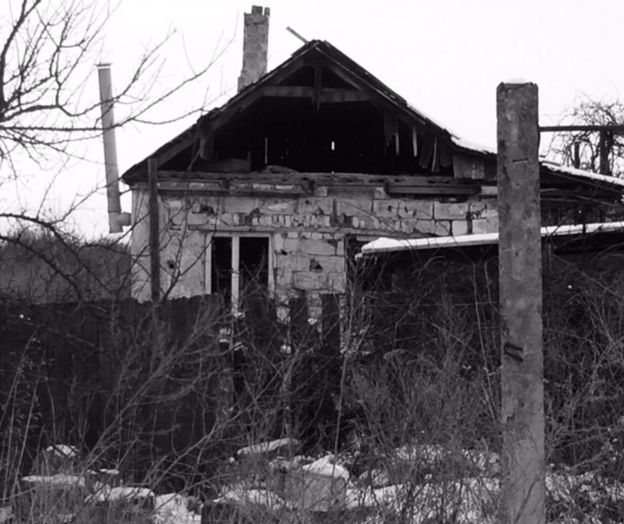

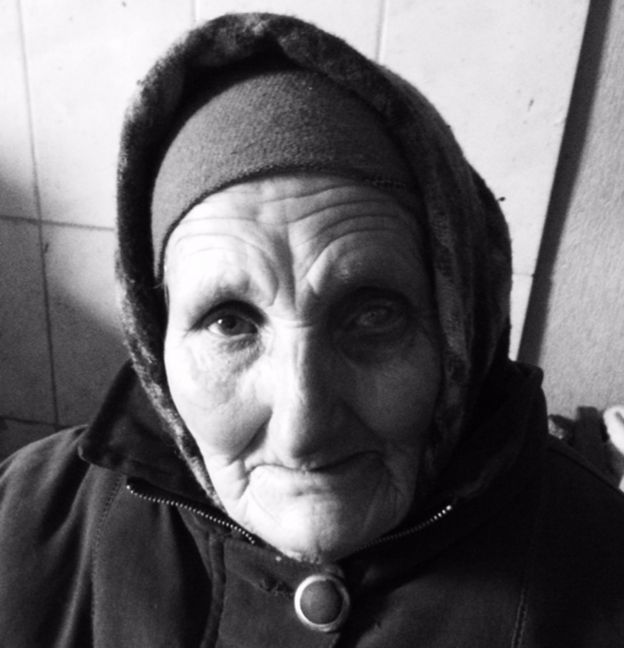
Having met the uprooted who live on the charity of others, or crowded into the flats of relatives, in the safer areas of the east, I understood what kept Anatoly and Svetlana in Pisky. They were each of them 70 years of age and had lived here all of their adult lives. Home was this: the place where the stove kept them warm when the temperatures dived at night; the place where the garden would blossom in a couple of months, and where Anatoly would step out each each summer morning to walk past his vines and the chicken coop to the hives where his bees would be working... and where, in the evening, he and Svetlana would listen to music on the radio as they had done through the long years of their married life. It was about the survival in their lives of the idea of belonging, to a place and to each other.
credit bbc.co.uk
No comments:
Post a Comment